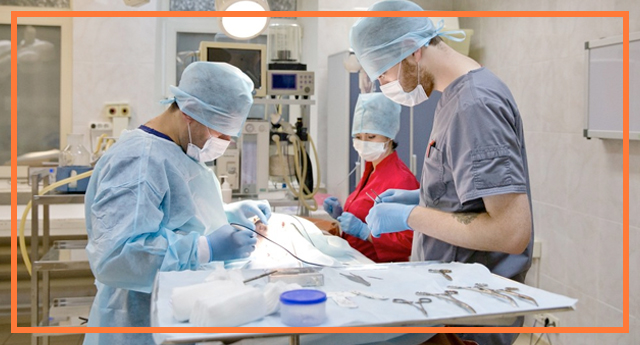Choosing Who Performs Veterinary Surgery on Your Pet
Choosing who performs surgery on your pet can be a significant decision, leaving many pet owners feeling puzzled.
The question often arises: Stick with your regular veterinarian or opt for a specialized surgeon?
Here’s the catch – both options come with their own merits.
Your trusted general veterinarian has extensive experience, having conducted numerous pet surgeries. They’ve honed their skills through years of practice, knowing various techniques like the back of their hand.
On the flip side, a specialized surgeon brings academic knowledge, rigorous training, and a different set of experiences. Their expertise lies in a distinct environment, focusing on extensive testing, prognosis, risk assessments, and other technical aspects that might or might not directly impact the procedure.
Each practitioner has their unique surgical approach, leaving the choice in your hands.
However, here’s the thing… if you’re seeking fast, efficient, pain-free surgery for your pet, all at an affordable cost, that’s precisely what we offer.
Here’s the Surgery We Offer
At Natchez Trace Veterinary Services, your pet’s well-being is our top priority. We take pride in delivering exceptional surgical care right within our clinic, utilizing cutting-edge techniques and advanced technology. Our commitment to your furry friend’s safety and comfort is at the heart of everything we do.
Before any surgery, our veterinary experts conduct a thorough screening process, ensuring that each procedure is carried out under the safest conditions. The assessment is tailored to meet your pet’s unique needs, providing personalized care to set the foundation for a successful recovery.
Our approach to anesthesia administration is both personalized and technologically advanced. Our highly skilled veterinary team tailors anesthetic protocols specifically to suit your pet’s individual needs. Combined with the use of modern anesthetic equipment, we guarantee precise and closely monitored administration throughout the entire procedure, giving you peace of mind.
In addition, our facilities are thoughtfully designed with your pet’s safety and comfort in mind. At Natchez Trace Veterinary Services, we’ve equipped our clinic with a comprehensive range of amenities, ensuring that your beloved pet receives the highest standard of care in a comfortable and secure environment. We understand that your pet is a cherished member of your family, and their well-being is our utmost priority.
- Heated surgery tables
- Advanced sterilization techniques
- ECG and oxygen saturation monitors
- Intra-operative fluid delivery
Finally, let’s talk about pain management—a crucial aspect of our surgical care. The amount of pain relief your pet receives can significantly impact their recovery after a procedure.
The pain management plan we suggest is personalized based on your pet’s specific condition and the type of surgery they undergo.
It’s important to know that we don’t choose pain medication randomly.
Why? Because managing pain isn’t about guesswork. We take a thoughtful approach, assessing your pet’s needs precisely to ensure they receive the most effective and tailored pain relief.
Here are some of the medicines and therapies we utilize to manage pain for your pet:
- Opiates
- NSAIDs
- Natural NSAID Alternatives
- Acupuncture
- Laser therapy
- Epidurals
- Lidocaine infusion
Your pet’s safety, comfort, and efficient recovery are our top priorities in every surgical procedure we perform.
When your pet undergoes surgery with us, our commitment is to provide the safest, most effective, and pain-free experience possible.
For certain complex cases like disc ruptures and complicated fractures, we may occasionally collaborate with surgical specialists to guarantee the best care for your pet.
However, the majority of surgeries are conducted right here in our clinic.
After your pet undergoes surgery, if they require post-operative care or physical therapy, we’re here to guide you every step of the way.
Our commitment doesn’t end when the surgery does! We’ll thoroughly explain post-op care and provide comprehensive support to assist your pet through its recovery journey.
Your pet’s well-being is our priority, and we’re dedicated to ensuring they receive the care and attention needed to achieve a smooth and comfortable recovery process.
Here are some of the routine surgeries we perform in-house:
- Cranial Cruciate Tears
- Patella Luxation
- Fracture Repair
- Routine Spay/Neuter
- Abdominal Exploration
- Tumor Removal
- Vasectomy
- Ovary Sparing Spay
- Tibial Tuberosity Advancement
Your pet’s well-being matters to us, and we’re dedicated to delivering exceptional surgical care tailored to their needs.
When it comes to choosing who performs surgery on your beloved pet, we’re here to provide the utmost care and expertise.
Feel free to discuss your preferences with us; we’re committed to ensuring the best possible outcome for your furry friend.





